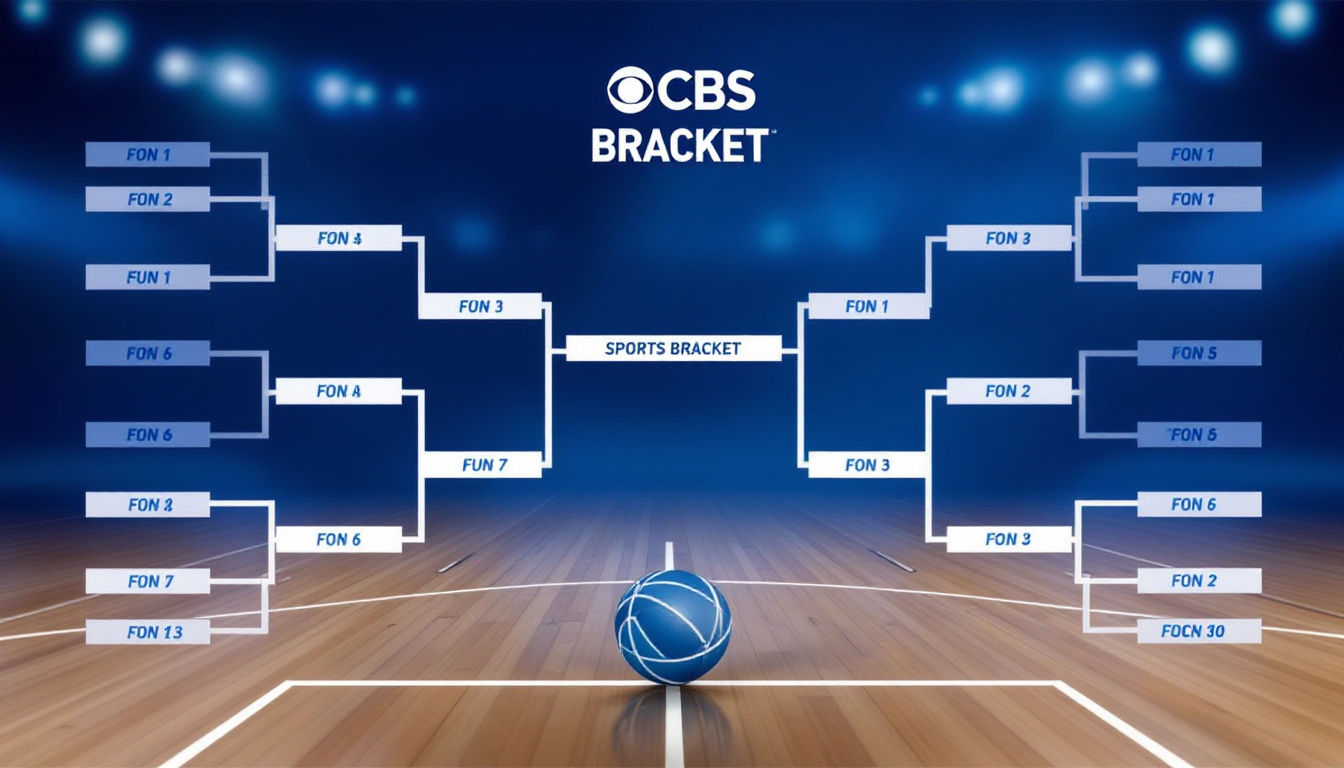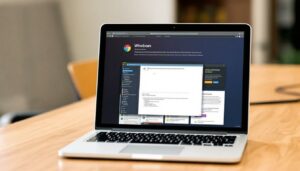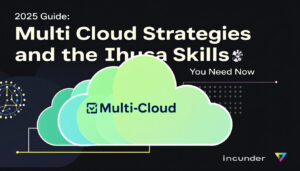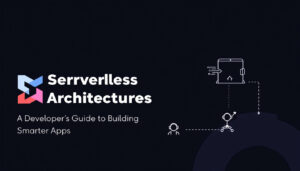Each spring, the CBS Sports Bracket becomes a focal point for professionals and enthusiasts as the NCAA Basketball Tournament approaches. The platform combines statistical scoring, predictive modeling, and structured competition, making it particularly compelling for IT specialists, developers, and business analysts seeking a data-driven challenge.
The bracket’s design rewards strategic thinking. Points are weighted more heavily in later rounds, encouraging informed decision-making and risk assessment. Participants can manage multiple brackets, track real-time updates, and experience an interface built for reliability and clarity.
For technical users, bracketology offers a unique intersection of probability, analytics, and user interface design. Those responsible for digital project management or data systems may find valuable parallels between the bracket’s complex framework and their own operational models. For a broader discussion on tournament technology and the digital experience, explore how March Madness impacts online infrastructure and entertainment.
What is CBS Sports Bracket and How Does It Work?
CBS Sports Bracket is a digital platform designed for tracking and managing NCAA Men’s Basketball Tournament predictions. Each year, participants use the system to submit bracket picks, monitor scores, and compete with colleagues or friends. The platform is optimized for accuracy, real-time updates, and accessibility, making it a reliable choice for both seasoned analysts and casual players.
 Photo by Chris wade NTEZICIMPA
Photo by Chris wade NTEZICIMPA
Platform Audience
CBS Sports Bracket serves a broad user base. While millions of Americans participate for entertainment, the platform is equally valued by IT specialists, data professionals, and business analysts. These users often approach bracket selection with methodical strategies based on statistics and performance models, using it as a tool for structured competition and group engagement.
Organizations use custom bracket groups to run internal contests or foster team building. For enterprise and tech professionals, the system offers a parallel to workflow management platforms—requiring thoughtful input and tracking, while managing large groups efficiently.
How the Platform Operates
CBS Sports Bracket functions as a centralized hub for March Madness predictions. Users complete their brackets by selecting projected winners for every matchup throughout the tournament’s six rounds.
- Registration: Participants create an account, join existing groups, or start new private leagues.
- Bracket Submission: Before the NCAA tournament begins, users fill out their brackets online, picking winners for each game. The interface streamlines navigation, with visual cues and statistical highlights for decision support.
- Confirmation: Once the bracket is set, selections are locked in when the first game tips off. No further edits are permitted after this point.
During the tournament, the CBS Sports Bracket system updates scores and progress in real-time. Participants receive notifications about their performance relative to others in their group, with rankings recalculated after each completed game.
User Participation and Data Input
The platform accommodates large groups, supporting office pools or online communities with hundreds or thousands of entries. Each user inputs game selections, which are stored and tracked throughout the tournament.
Key participation features include:
- Group creation and management tools.
- Data visualization, such as live brackets and leaderboards.
- Mobile access for on-the-go updates.
These functions mirror principles seen in workforce management or data monitoring tools, allowing professionals to analyze outcomes and adjust future strategies.
Scoring and Real-Time Updates
Scoring is transparent and standardized. Points increase as rounds progress, assigning more value to correct predictions in later stages of the tournament. As games conclude, the bracket automatically updates, reflecting wins, losses, and adjusted probabilities for each user’s forecast.
- Early Rounds: Fewer points per correct pick.
- Later Rounds: Substantial point increases, rewarding deeper analysis and strategic risk.
- Feedback Loop: The interface enables immediate response to upsets, shifting the competitive landscape within groups.
These scoring dynamics encourage both risk management and analytical rigor, appealing to users with backgrounds in data interpretation or competitive modeling.
For further context on technology’s role in sports analytics and predictive modeling, see related coverage on streaming traffic and data analysis during major events at How March Madness Affects Streaming Traffic and Data.
Key Features and Tools for Bracket Management
CBS Sports Bracket provides a range of tools designed to make managing March Madness predictions efficient and informed. Its technology-driven features offer more than traditional pool setups, especially for users who value analytics and reliability. These functionalities are practical for both individual competitors and organizations running large pool groups.
Autofill and Predictive Analytics
CBS Sports incorporates predictive analytics to help users fill out their brackets. The autofill tool utilizes data from team performance, seeding, and past tournament outcomes to offer users statistically-informed choices. This function is designed for users who seek an edge without manual research. By combining machine-generated projections with user preferences, it achieves balance between automation and personal strategy.
With predictive analytics:
- Users receive round-by-round suggestions based on statistical likelihoods.
- The system reduces time spent researching, supporting swift decision-making.
- Autofill can be tailored—users may rely entirely on data or fine-tune selections as desired.
- Risk levels and upset probabilities are factored into autofill, appealing to more analytical participants.
Predictive autofill makes bracket completion accessible for those less familiar with college basketball and valuable for professionals wanting to optimize their picks through structured methods. Full rules and details on how these analytics integrate with group competition are available in the official CBS Sports Bracket Challenge documentation at the 2025 CBSSports.com Bracket Challenge Rules.
Real-Time Scoring and Leaderboards
Once the tournament begins, CBS Sports delivers real-time updates for every game. Scores and user progress are reflected immediately in the bracket dashboard, allowing all participants to monitor their position. The platform’s scoring system ensures every selection is evaluated as games end, updating team advancement and recalculating possible outcomes.
Group play is enhanced by:
- Dynamic leaderboards updating after each result.
- Visual representations of user rankings within groups.
- Support for both private and public leagues, suitable for work or technical teams.
In corporate or developer group settings, real-time leaderboards drive engagement and maintain transparency. Every member has equal access to current standings and can track how bracket choices affect overall performance.
The platform’s commitment to real-time scoring not only guarantees accuracy but also boosts competition. For a current look at brackets and ongoing events, review the NCAA Tournament Brackets and March Madness Games resource from CBS Sports.
 Photo by Nic Wood
Photo by Nic Wood
Integrating these tools allows CBS Sports Bracket to meet the expectations of professionals seeking streamlined, data-supported management, regardless of group size or competitive intensity.
CBS Sports Bracket Strategies for Tech Professionals
Technical professionals can treat March Madness brackets like a data science project. CBS Sports Bracket allows structured, group-based competition—ideal for workplaces or development teams. With the right approach, IT staff and business analysts can bring more precision and collaboration to their bracket contests. Below, two targeted strategies demonstrate how advanced data practices and team tools add value for tech-oriented users.
Using Data and APIs for Better Bracket Picks
 Photo by Vlada Karpovich
Photo by Vlada Karpovich
Data-driven strategies allow IT and analytics professionals to outperform casual guesswork. CBS Sports Bracket can serve as both an exercise in prediction and a showcase for advanced analytics.
Many professionals use sports APIs and historical datasets to improve accuracy. Available APIs—such as Sportradar, TheSportsDB, and even CBS’s own feeds—provide real-time statistics and player analytics. By incorporating these sources, you can:
- Automate bracket suggestions based on team efficiency, player performance, and injury reports.
- Feed data into machine learning models that simulate outcomes thousands of times, assessing probability and risk.
- Use scripts to compare public sentiment or expert picks against your own algorithmic models.
For those with a programming background, Python libraries like pandas or scikit-learn can be applied to sports data, building predictive models that rival those used by professional oddsmakers. Some organizations even use predictive simulations, similar to the SportsLine computer model, which runs outcomes 10,000 times for an evidence-based ranking of bracket picks. This practice shifts the bracket challenge from a game of chance to one of probability and repeatable logic.
Collaboration and Group Play for Businesses and Developers
For IT teams and business units, the CBS Sports Bracket offers practical opportunities to foster group collaboration while honing operational or analytical skills. Group pools not only make the contest more engaging—they reward teamwork and can be managed just as securely as any business application.
Setting up a workplace bracket pool involves establishing a private group, defining ground rules, and promoting secure sharing of predictions. Organizations should use internal communication platforms—like Slack or Microsoft Teams—to organize discussions, recap results, and share insights while ensuring that sensitive data or personal information is protected.
Best practices for collaborative bracket play include:
- Running regular group check-ins to track standings and highlight unusual outcomes.
- Using role-specific dashboards or data visualizations so each team can review their progress in real time.
- Creating non-monetary incentives—such as gift cards, extra breaks, or public recognition—to drive participation.
- Integrating bracket analysis into business intelligence platforms, allowing technical teams to assess strategy against actual performance and refine prediction models for future years.
Proper setup transforms the CBS Sports Bracket into a business engagement tool. When done well, it improves workplace morale, fosters healthy competition, and creates new learning opportunities around analytics and collaborative platforms. For a broader look at how structured, group-based activities drive performance, explore resources similar to this CBS Sports predictive bracket analysis.
By taking a methodical, team-oriented approach to the CBS Sports Bracket, technical users demonstrate the power of data collaboration even in environments designed for entertainment.
Security, Privacy, and Compliance in Bracket Platforms
With online bracket challenges like CBS Sports Bracket, the intersection of user engagement and information security requires clear safeguards. Both private individuals and organizations demand robust protection of personal data. For IT professionals and business leaders, diligence in platform selection, group management, and regulatory alignment is essential.
 Photo by Antoni Shkraba Studio
Photo by Antoni Shkraba Studio
Platform Security Measures
Online bracket platforms, including CBS Sports Bracket, maintain a core focus on data security. These environments are designed to limit exposure by restricting access to personal information and by using industry-recognized encryption protocols.
Key security measures often include:
- SSL/TLS encryption for all web traffic.
- Role-based authentication to help restrict group admin functions.
- Monitoring for suspicious account activities.
CBS Sports implements similar security controls as seen in enterprise-grade SaaS. Viewing the technical details of encryption and defensive layering across other bracket systems, Bracket’s approach to encryption highlights current industry trends for protecting user data in digital contests.
Handling of Personal Information
Personal details such as names, email addresses, and sometimes even organizational data are collected during the bracket registration process. Careful data handling reduces the risk of breaches or unauthorized use.
Data management guidelines on most platforms include:
- Storing only the minimum personal data required for group management and notifications.
- Deleting: Users should have the option to delete entries after contests close.
- Limited sharing: Bracket entries and user details are generally available only within private user groups, not to the public.
IT professionals evaluating bracket tools should review platform privacy documentation, seeking clarity on third-party partnerships or advertisers who may access group data.
Compliance: GDPR, CCPA, and Organizational Policies
Organizations hosting or endorsing group bracket play must observe legal standards such as the General Data Protection Regulation (GDPR) for users in Europe and the California Consumer Privacy Act (CCPA). CBS Sports’ privacy practices reflect widespread adoption of regulatory frameworks for transparency and user rights.
Steps to compliance often include:
- Publishing clear privacy policies accessible from registration and dashboard screens.
- Enabling users to access, export, and delete their own data in line with GDPR’s right of access and deletion.
- Prompt notification of users and stakeholders in the event of security incidents.
For staff organizing internal contests, adhere to corporate privacy rules and obtain written consent before using business email lists for bracket invitations. Reference your own company’s IT guidelines for events involving third-party apps or platforms.
For an overview of March Madness-specific online threats, see tips for secure participation during the tournament.
Security Awareness for Group Hosts
Corporate bracket pools demand a higher bar for network and device security. Team administrators should:
- Mandate strong passwords for group access.
- Avoid sharing group codes through public forums or unsecured messaging.
- Review permissions for apps that request access to work calendars or directories.
Monitoring for phishing or scam invitations is critical. March Madness scams spike each spring. Organizations should guide participants to use only official links and accounts, as outlined in professional recommendations.
What IT and Business Users Should Know
Technical users are accustomed to evaluating risk. When participating in bracket challenges:
- Verify data protection features before inputting employee emails or hosting data.
- Limit bracket group size as needed; large public pools increase risk.
- Use official CBS tools and avoid unofficial “side bet” apps.
Integrating brackets into workplace culture can be positive if built on a framework of privacy, compliance, and secure practices. For additional guidance on secure digital engagement in sports contests, you can reference broader analyses such as infrastructure impacts during peak sporting events.
Comparison with Other Bracket Platforms
CBS Sports Bracket is recognized for its structured tools and trusted data management. However, comparison with leading alternatives—namely ESPN Tournament Challenge and Yahoo! Fantasy Bracket—provides clarity for IT professionals and business users who require more specialized features. Selecting a bracket platform depends on group size, feature needs, system integrations, and user management preferences.
Feature Overview: CBS Sports, ESPN Tournament Challenge, Yahoo! Fantasy Bracket
 Photo by Pok Rie
Photo by Pok Rie
The primary providers in this segment—CBS Sports, ESPN, and Yahoo—each offer a robust suite of features. Their differences emerge most sharply in analytics, integration support, group controls, and user experience.
- CBS Sports Bracket:
- Focuses on clean data visualization and group management.
- Real-time scoring and user performance tracking are central.
- Integrates predictive analytics with autofill and advanced pick suggestions.
- Designed for large groups and workplace use, supporting corporate pools and high-volume private leagues.
- ESPN Tournament Challenge:
- Prioritizes rapid updates and a broad social reach, leveraged by ESPN’s extensive sports coverage.
- Features “Who Picked Whom” (WPW) data for instant insight into public sentiment.
- Allows for seamless mobile access, though some limitations on analytics customization persist for business users.
- Yahoo! Fantasy Bracket:
- Known for interactive features, including real-time in-group chat and customizable scoring models.
- Offers detailed pick statistics and trends, plus a streamlined setup good for medium-sized pools.
- Commended for its integrations with Yahoo Fantasy Sports, fitting well in organizations already using Yahoo for fantasy leagues.
A side-by-side analysis is available in this detailed bracket platform comparison guide, which is useful for making an informed choice based on group or enterprise needs.
Analytics and Data Tools
Technical users seek granular insight, transparent scoring, and API support for data imports or exports.
- CBS Sports offers built-in predictive analytics, serving automated suggestions and visual feedback on risk-reward tradeoffs for picks. The interface suits data-driven reviews and is accessible for non-technical users.
- Yahoo is praised for historical matchup data and customizable scoring, making it suitable for users who want to simulate alternative tournament outcomes internally.
- ESPN addresses a wider audience, but advanced analytics may require manual extraction or third-party integrations for in-depth statistical projects.
ESPN’s “Who Picked Whom” tool is popular but lacks the step-by-step simulation favored by some IT analysts. CBS Sports’ reporting and data presentation reflect a balance between simplicity and detail, beneficial for shared technical environments.
For perspective on how user experience and analytics shape the best bracket platforms, visit this UX-focused review.
Group Collaboration and Integration
Integration with business tools and secure group management is essential for IT departments, developer teams, and enterprise pools.
- CBS Sports supports the creation of large, private groups, robust admin controls, and customizable visibility settings. It performs reliably in corporate environments where privacy and compliance matter.
- Yahoo brings additional engagement tools, such as in-platform messaging and personalized leaderboards. It can increase group interaction but sometimes makes administration for very large organizations more complex.
- ESPN simplifies setup with minimal friction but has fewer controls for custom scoring or internal reporting. This can limit its appeal for organizations that require detailed tracking and analysis of group activity.
Additional insight on selection criteria and business impact is available in the best March Madness bracket hosting checklist.
Security and Privacy
Platform security and privacy features are not uniform across services.
- CBS Sports addresses compliance through secure authentication, minimal required data input, and transparent privacy documentation. This is relevant for organizations needing clarity on GDPR or CCPA practices.
- ESPN applies standard security but does not offer as granular control over group membership and access.
- Yahoo balances ease of use with moderate privacy controls, but some groups report challenges managing very large user sets with strict IT requirements.
For more detailed information on CBS Sports’ compliance and system controls, readers may consult the section on security and privacy standards for bracket platforms.
Final Observations
For IT and business environments that prioritize group management, data insight, and compliance, CBS Sports Bracket offers a disciplined, feature-rich alternative to ESPN and Yahoo. The best choice will depend on group size, integration needs, and the desired level of analytics or custom reporting. Analysts and administrators should compare these aspects against their unique prerequisites, using third-party reviews and internal policies as part of the decision-making process.
Conclusion
CBS Sports Bracket delivers a disciplined, robust platform for managing March Madness predictions, meeting the needs of technical users and business leaders. Its focus on data accuracy, scalable group tools, and trusted compliance standards supports structured competition at any level. Features like predictive analytics and real-time scoring allow both individuals and organizations to test strategies and improve decision-making.
Teams can use internal pools to drive engagement and refine analytical skills through direct application. Experimenting with data models or collaborative group play fosters a richer experience that aligns with the precise, results-oriented approach valued in technical fields. As digital workplace activities evolve, those seeking more control or insight from their bracket process can look to CBS Sports Bracket as a foundation for continual learning and group interaction.
For readers interested in broader topics that shape technology-driven workplaces, such as best practices for new projects, consider exploring guidance like the Building a Custom PC: A Beginner’s Guide. Thank you for your attention—your insights and engagement help drive continuous improvement in every season.









